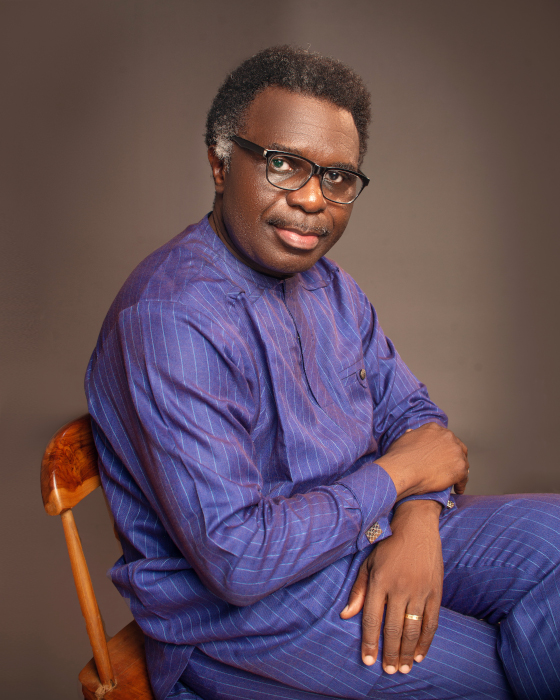Africa
The Politics of Distraction and the Poverty of Gifts -By Leonard Karshima Shilgba
Benue does not need another donation; it needs direction. It does not need handlers or hirelings; it needs honest leaders. True development requires long-term vision, institutional reforms, and a moral commitment to the people—not to personal survival. The real enemy is not foreign; it is the domestic betrayal of potential by those who wrap failure in the glitter of gifts. No matter how much you give a man out of what you have stolen from him, it can never amount to an atonement.

In the heart of Nigeria’s Middle Belt lies a paradox too painful to ignore. A state blessed with vast human and natural resources continues to limp under the weight of underdevelopment—not for lack of potential, but for the sustained absence of principled, visionary leadership until most recently. And curiously, some of those most celebrated as “leaders” have perfected the art of distraction.
Since 2007, a prominent political figure from the state has managed to maintain relevance and even veneration, not by delivering transformative progress, but by deploying a cocktail of symbolic gestures, selective patronage, and manufactured narratives. His strategy is elegant in its deception: appear generous, seem connected, and ensure that visibility, not substance, is the metric of political loyalty.
One of the most potent tools in this playbook is selective gift-giving. How does this work? It takes the form of tricycles, sewing machines, bags of rice, and one-time cash handouts (not enough for a significant business startup, but just enough to keep the receiver dependent and loyal)—lavishly publicized, but tragically insufficient to alter the material conditions of poverty in any meaningful way. These gifts are not empowerment tools; they are tools of pacification. They are designed not to lift communities out of destitution, but to keep them dependent, quiet, and grateful. Now, here is an insidious result: just “slip up” and write or utter a word that his beneficiaries perceive as “disloyalty” towards their idol, and you will see a torrent of curses, invectives, and colored words against you. Some of those devotees may even allege that you are “jealous”, “envious”, or “angry for not receiving favour” from their “god”.
And here is a conundrum: many of those vicious devotees are hustlers, either struggling to survive materially, or just mere hangers-on striving to register a notable squeak for quids. They have been too crudely conditioned to think straight.
This kind of politics nurtures a culture where dependency replaces dignity. The gifted owe their silence. They dare not ask about uncompleted hospitals, abandoned projects, broken schools, federal compensations received, or the absence of industrial investment. They are taught, often indirectly, that leadership is not about accountability but benevolence—that the politician is not a steward of public resources, but a dispenser of personal favors. And who asks where cash flows from to him and then droppings to them, more so that his visible sources of legitimate income can’t legitimately support his strategic “benevolence”. He deals in political retailing or commerce.
This “Big man’s” society is known for one multi -pronged agenda: a lump of food, a piece of meat, a drink, and “injaa mato” (transport fare to return to bought silence). Ironically, his political commerce hasn’t reduced material poverty (which is, apparently, not his focus, though); instead, together with the existing state of insecurity is excruciating hunger in the land, thus rendering an indubitable verdict that this sort of politics doesn’t pay the majority of the people even if a few with access can boast of crumbs, which, in any case, are barely enough to peek a head beyond the life support perimeter.
The result is a society where the performance of power eclipses the purpose of governance. Where ethnic sentiment is weaponized to shield political actors from legitimate criticism. Where media allies and loyal surrogates dominate the airwaves, rewriting failure into favor and obscuring a record devoid of strategic development.
More dangerous still is the co-option of moral institutions. When faith leaders are invited to the table of crumbs, silence becomes sanctified. In the midst of manufactured poverty, the clergy is ever so willing to encourage bidding for its silence with a lump of cobbled crumbs. Public conscience, which should be the last line of defense for the oppressed, is dulled by a false sense of access and momentary gain. So, the oppressed vigorously defend or justify their oppression and turn against genuine rescuers.
Meanwhile, the state continues to lose its brightest. Youths leave for cities and countries that promise merit over mediocrity, while the girls are trafficked by pimps. Farmers lose their dignity to insecurity. Teachers and civil servants are asked to stretch salaries that vanish before they are paid. Girls elope with boys hoping they could find refuge in “marriage” until they learn the hard way, returning home with pregnancies or infants, adding more months that cannot be fed with dwindling food which their families scavenge for daily. But every once in a while, a tricycle is given here, a grinding machine is donated there. The photo is taken. The illusion is refreshed. The few lucky beneficiaries are lyrical, but poverty, like the stubborn Mt. Gibraltar, remains unperturbed and immovable in the land.
It is time to break the spell.
Benue does not need another donation; it needs direction. It does not need handlers or hirelings; it needs honest leaders. True development requires long-term vision, institutional reforms, and a moral commitment to the people—not to personal survival. The real enemy is not foreign; it is the domestic betrayal of potential by those who wrap failure in the glitter of gifts. No matter how much you give a man out of what you have stolen from him, it can never amount to an atonement.
The people of Benue must learn to see beyond the hand that gives, and ask: What has that hand withheld?
© Shilgba






















